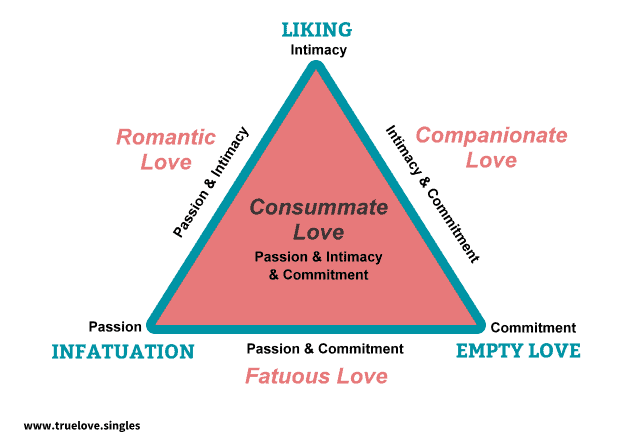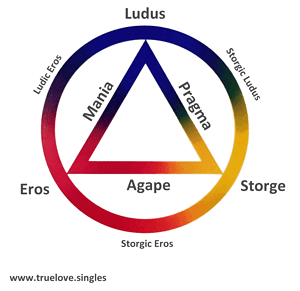 Ever wondered why people say that “no man is an island.” The phrase expresses the idea that human beings do badly when isolated from others and need to be part of a community in order to thrive. So, what then about sex, love, and family? Can we truly overcome isolation without engaging in sex, love, or family? Are friends or acquaintances good enough to avoid alienation?
Ever wondered why people say that “no man is an island.” The phrase expresses the idea that human beings do badly when isolated from others and need to be part of a community in order to thrive. So, what then about sex, love, and family? Can we truly overcome isolation without engaging in sex, love, or family? Are friends or acquaintances good enough to avoid alienation?
Well, we are already part of a private community – that is mom, dad, and our siblings; and we seek and maintain friends and acquaintances to enjoy the many considerable benefits of more private-to-public communities – let’s say a chat group, a hobby club, or a church, etc.
Still, I also love my solitude, whereas I am able to keep myself company so as to engage in a conversation with myself.
Beating Loneliness
Strange enough, however, all of the above seems not to be gratifying enough, not sufficient to beat loneliness — a natural aspect of the human condition according to Hannah Arendt. Most often we are also looking for a mate to share a bed with — the One. And that is where and why it really begins to get complicated in life.
We are not self-sufficient beings, not in economic terms — we need the baker, the farmer, the builder to make things for us. And we are not self-sufficient beings in terms of our erotic nature — when our body gets intimately aroused, we wonder why we should be alone.
What is it like to share a bed with another? Is that why we pair-bond? Because we want to share the bed with another? Or do we pair-bond because we want to go to Heaven – that is when religion tells us that only a pair-boded man/woman couple can enter Heaven? Yes, who wants to go to Hell…
Truthfully, there are plenty of people for whom the essence of living is not characterizable by sex, love, and family, but rather by faith and family — or even faith, family, and lineage. For these respectable folks, sex and love are subordinate and perhaps taken-for-granted items somewhere under the rubric of family. Their interpersonal relationship itself is subsumed under the auspices of a God who loves, motivates, and thus unites incomplete or failing individuals supposedly incapable or untrustworthy of letting their own love originate between themselves.
In any case, we must believe that life is worth living, and live a worthy life. Life is worth living, not on its own, but because you and I can make it so. If I can beat isolation, so can you. And in that, love and a One are so important in Western sensibilities.
Is it ever enough for a man to become the proud owner of a Beverly Hills mansion, so as to be the most desirable to all blind-sided women? Is it ever enough for a woman to appropriate a husband, so as to bind him in duty and obligations? Nope, I think that folks ought to be looking instead for what is called the ultimate affirmation of self as gifted by a free and equal other — the One.
What about just a bit of sex and love here and there with a One good enough, and instead shared attention and concern for the ancestors and descendants — that is lineage and perhaps even permanence? Why could that not be made to work?
 People of Asia still seem to have that sense and sentimentality for life, family, and lineage. However, I have not come across publications that explain sex, love, and family from an Eastern perspective. Neither have I come across any publications that look at these issues from an African perspective.
People of Asia still seem to have that sense and sentimentality for life, family, and lineage. However, I have not come across publications that explain sex, love, and family from an Eastern perspective. Neither have I come across any publications that look at these issues from an African perspective.
In any case, sex, love, and family are undoubtedly complex issues and in dire need of better understanding, especially by singles seeking to not just get married but to establish a fulfilling interpersonal relationship with a One for good.
It is helpful to also understand the historical context of ideas, how the human condition informs their genesis, and how that human condition continues to structure our thinking today in ways that we might not fully realize. Tolerance seems to be a great virtue to have in making loving relationships last.
A Theory of Love to the Rescue
Psychologist Robert Sternberg developed a rich model for a better understanding of lasting, interpersonal relationships between two people. It is called the Triangular Theory of Love. And no, it is not so much about what love is or is not by itself, it is more about the nature of love relationships. I am very fond of Sternberg’s insights as they are rather appealing and go a long way in explaining the dynamics in interpersonal relationships — all without requiring the cold brilliance of an academic mindset.
The following graphic of Sternberg’s conceptions of love should easily evoke your curiosity and enlightenment, especially if you are already — or were — in a bonded relationship. For those seeking a One, this conception is a worthy model of love relationships to be anticipated.
(Are we not all fond of labels and charts and graphs and PowerPoint presentations to explain life?)
It is not only Sternberg who came up with a graphic. There is also the Color Wheel of Love, an idea created by Canadian psychologist John Alan Lee that describes six styles of love, using several of the Latin and Greek words for love. You may not care much for Greek words, and I do not blame you. However, the plain-English explanations in their regard are actually helpful. Please click the links and look them up!
First introduced in his book Colours of Love: An Exploration of the Ways of Loving (1973), Lee defines three primary, three secondary and nine tertiary love styles, describing them in terms of the traditional color wheel. The three primary types are , , , and the three secondary types are , pragma and .
But how can a wholesome conception of love help, as appealing as the charts maybe? Can people rise and attain consummate love at all, and then keep it up 24/7/365…? Probably not. My midlife crisis started some 15 years ago and I do not know that it has ended.
Regardless, I can “see” myself and my relationship with my spouse in these circles/triangles. Now that I know what I’ve got, and what not, and what I want, I can work on it. I could also rephrase the above as: now that we know what we’ve got, and whatnot, and what we want, we can work on it. Yes, being able to fairly articulate one’s needs and wants is a good start for making changes!
Keep these Vitality Channels open
Populist author Alain de Botton reckons that ‘no one can be everything to another person’ is very poignant, but not the point of this post yet. Salient as well is that sex, love, and family — as de Botton writes — are basic human needs. In other words, these are projects in our lives, and as needs or projects or vitality channels (as I like to call them), they connect us as partners in relationships, at least in the Western world and for better or worse.
So, what can be done? Well, at minimum, try to keep these vitality channels open, or — if you are still young and single or on the rebound — anticipate needing to keep them open.
Yes, each one of us probably falls short, or will fall short many times, of the needs and wants of our better half. Keeping these vitality channels open in spite of falling short here and there — or rebalancing vitality within them — will make a significant difference.
In my mind, these vitality channels map generally to psychologist Sternberg’s Triangle of Love (see above), with:
- sex mapping to passion,
- love mapping to intimacy, and
- family mapping to commitment.
Keeping these vitality channels of sex, love, and family open and balanced at all costs seems to be the best short advice I can offer. Again, I am not a marriage counselor but believe that if a couple, just starting out or making a new start, can keep communications in these channels fluid, a marriage counselor may not be needed.
The Far East, Middle East, and Africa
However, I doubt that this theory of love, this model is a good fit for long-term relationships in the Far East, Middle East, or African world. I know little about what is important to people in the Eastern world and have read little about it. Ditto for Africans or other, less overbearing cultures. But I have watched Disney’s animated Mulan years ago and just know that ancestors seem to be really important in Asia.
For Asians, might we need to instead draw that triangle of perhaps sex, family and lineage, and leave love on the sidelines? Or how about sex, household and lineage? As in ‘do they talk about love in China, Korea and Japan?‘
The idea of a family might also be a concept rather typical to modern Western culture. Germanic peoples, especially in times prior to their conversion to Christendom, used to live as households in longhouses: men, women, children, parents, grandparents, brothers, sisters, cousins, servants, dogs, cats, chickens, pigs and cattle, etc. A private bedroom was not only unknown, it was unimaginable.
Tons of people all over the world still experience life in households rather than isolated, clearly demarcated family units. What does love mean to folks in these circumstances?
Subservience is not Freedom
I really do not know, and wonder what it is that we people (myself included) are more subservient to: sex, or love, or family/household, or lineage, or religion, a combination of some or all, or what? And why? Whatever it is, subservient we are — it seems.
It is the human condition that condemns us into some forms of subservience. Nobody can seriously be happy living alone on an island for life. Tom Hanks tried it in the movie Castaway, and it did not work for him. “Gotta Serve Somebody” is the song by Bob Dylan from his 1979 studio album Slow Train Coming. It won the Grammy Award in 1979.
Freedom is never just that, say historian of ideas Isiah Berlin and playwriter Jean-Paul Sartre. It is either freedom to or freedom from something. I wonder, is it that we are free to be subservient, but never free from being so?
I believe otherwise. Reciprocated love — unsullied by the desire of sex and unsullied by the concerns of family and lineage — has perhaps the power to lift us out of the nasty predicament of subservience — at least for a few precious, fleeting moments once in a while. Therein lies love’s allure, I figure. And we are free to love!
Yet, we must be willing to give up a considerable dose of freedom when deciding to engage. Is marriage really that much more painless than living under a palm tree — alone? What makes the loss of some individual liberties worthwhile? The One.
Love is Different for Man and Woman
Sex, love, and family — each might also have a significantly different meaning for men and women. Feminist writers, on the left and right, often talk about love or man-woman relationships in ethical-social-political terms and are probably right while complaining that women, as living in a man-centered world, are still treated by men as necessary auxiliaries — equal, but not that much.
Men, and philosophy, literature, and the media are full of them, do not seem to mind that women are equal — just not by much. “What would they be doing if they weren’t?” Women, apparently, haven’t figured out the answer to that yet.
French writer Simone de Beauvoir is known for her 1949 treatise The Second Sex, a detailed analysis of women’s oppression and a foundational tract of contemporary feminism. She found many aspects of love, romance, and marriage to be demeaning to women, and, as some interpreted her writing, blamed women for not standing up enough for themselves. However, she tried to correct that assessment as a misunderstanding.
Radical feminists may have temperate, if not even conservative and spiritual views on the possibility of love between men and women. The future about love, suggests Luce Irigaray in her book The Way of Love, has not been lived yet.
And then there was Stendhal to describe differences in Chapter 7 of On Love.
Be All For The Other
 Back to de Botton’s and my regurgitated wisdom. He writes that it is perhaps difficult for anyone of two bonded people to be all for the other and all the time: the ideal sex partner, the ideal lover, and the ideal family dad or mom. Is there such a person anywhere?
Back to de Botton’s and my regurgitated wisdom. He writes that it is perhaps difficult for anyone of two bonded people to be all for the other and all the time: the ideal sex partner, the ideal lover, and the ideal family dad or mom. Is there such a person anywhere?
On this blog, we already talked about in great length about what love maybe or not. Love, we found, is hard to define in encyclopedic and normative ways. Love alone, good enough love, really is — like beauty — “in the eye of the beholder.”
From what philosopher Ludwig Wittgenstein once posited, we may infer that love is what it is meant to be in terms of our use of the word in our vernacular language. Helpful? Perhaps not.
Sex is even more touchy to write about. Sex can be had between strangers without much love — perhaps with the exchange of money — and still be gratifying. It can be had between friends as a loving act and be gratifying. And sex can be had with or without felt love in conjugal relationships and be gratifying as a loving act.
Besides sex, family is also on most people’s minds — sooner or later. Oh yes, eventually men like to have their strong sons take over their business affairs, and women like to be taken care of by their grown offspring after husbands have lost interest in them.
In my opinion, sex and family rule. Love, usually, is just wondered about.
Family, as well as extended family or household, are important to many for reasons of survival and wellbeing. That may cut across all cultures, East or West, African, or whatever.
The stress resulting from the vagaries of sex and love might amplify or not, but when it does and when added to that the stress from familial duties and obligations, a perfect storm may develop at times.
Consummate love, a consummate relationship in terms of Sternberg’s conception, might now appear to be aspirational at best and not really that tangible at all. A consummate relationship, then, must practically be considered perfect when it is just good enough. And it takes not just one but two, or three or more in case of a family, to agree on that! Like in “Is it good enough for you as well?”
If it is, be happy, really happy…


[…] the themes of sex and family dominate the center stage of life. Love is then viewed as a risky extravagance, even for people […]